
A Look at Steam vs GOG: Digital Storefront Divergences

A Look at Steam vs GOG: Digital Storefront Divergences
Quick Links
- What’s the General Difference Between Steam and GOG?
- DRM Policies and User Restrictions
- Game Catalog and Exclusives
- UI and Ease of Use
- Community Features and Social Integration
- Customer Support Effectiveness and Refund Policies
Key Takeaways
- Steam boasts a massive game library with frequent sales, while GOG focuses on DRM-free classics and offers easier offline play.
- Steam excels in social features with friend lists, achievements, and community forums, while GOG prioritizes user ownership with DRM-free games.
- Both platforms offer similar customer support response times, but Steam has a faster automated refund process compared to GOG.
PC game storefronts and launchers exist in multitudes, but GOG and Steam remain two of the most popular. They both have different companies behind them, but what really sets them apart? The short answer is DRM—but there’s more to it than just that.
What’s the General Difference Between Steam and GOG?
For those who don’t know, both Steam and GOG Galaxy are game launchers. Essentially, they are applications for organizing games on your computer. You can manually add games you have already installed or you can buy and download games from their in-app stores.
Steam is owned by Valve Corporation. Meanwhile, CD Projekt owns GOG (and its game launcher, GOG Galaxy). The unique visions and goals of these companies shape the direction of each game launcher and store. For example, GOG has a focus on providing DRM-free games.
Therefore, you’re more likely to see a focus on older RPG-like games on GOG compared to the broader selection on Steam.
However, Steam is the most popular PC game launcher and storefront, with over 50 million daily active users.
1. DRM Policies and User Restrictions
The number one selling point for GOG is its DRM-free policy. For those who don’t know,DRM stands for digital rights management , and it’s usually used in the gaming world to refer to the strong restrictions that come with purchasing a game.
For instance, buying a game on Steam doesn’t mean you own it; you’re simply buying a license to play it through your Steam account. That means some games with third-party DRM systems, like Denuvo, require you to log in every few weeks.
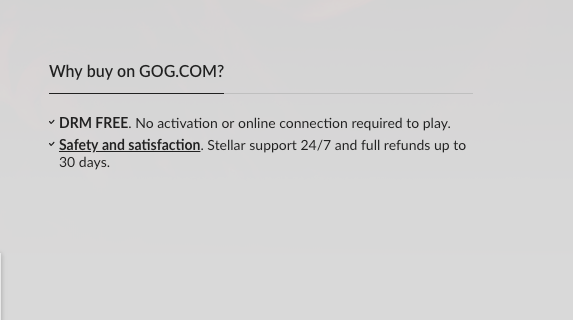
GOG doesn’t believe in that. You can do whatever you want with a game that’s installed on your PC, and you can choose to remain offline as long as you want without losing access to any pre-downloaded content.
You can also log in to your GOG account on however many computers you want and download your purchased game. If you want, you can skip the GOG Galaxy launcher completely and download a game directly from GOG.com through a browser.
In contrast, Steam allows only one game session per account. This means that only one computer can access your Steam library at a given time, and you can’t run two sessions of the same game simultaneously. Additionally, the only way to download a Steam game is through Steam’s desktop client.
While GOG’s DRM-free policies are great for people with unreliable internet and gamers who worry about DRM’s privacy implications, they may also foster piracy and illegal game-sharing. Both sides have good arguments, and you should choose where to buy your games based on your preference.
2. Game Catalog and Exclusives
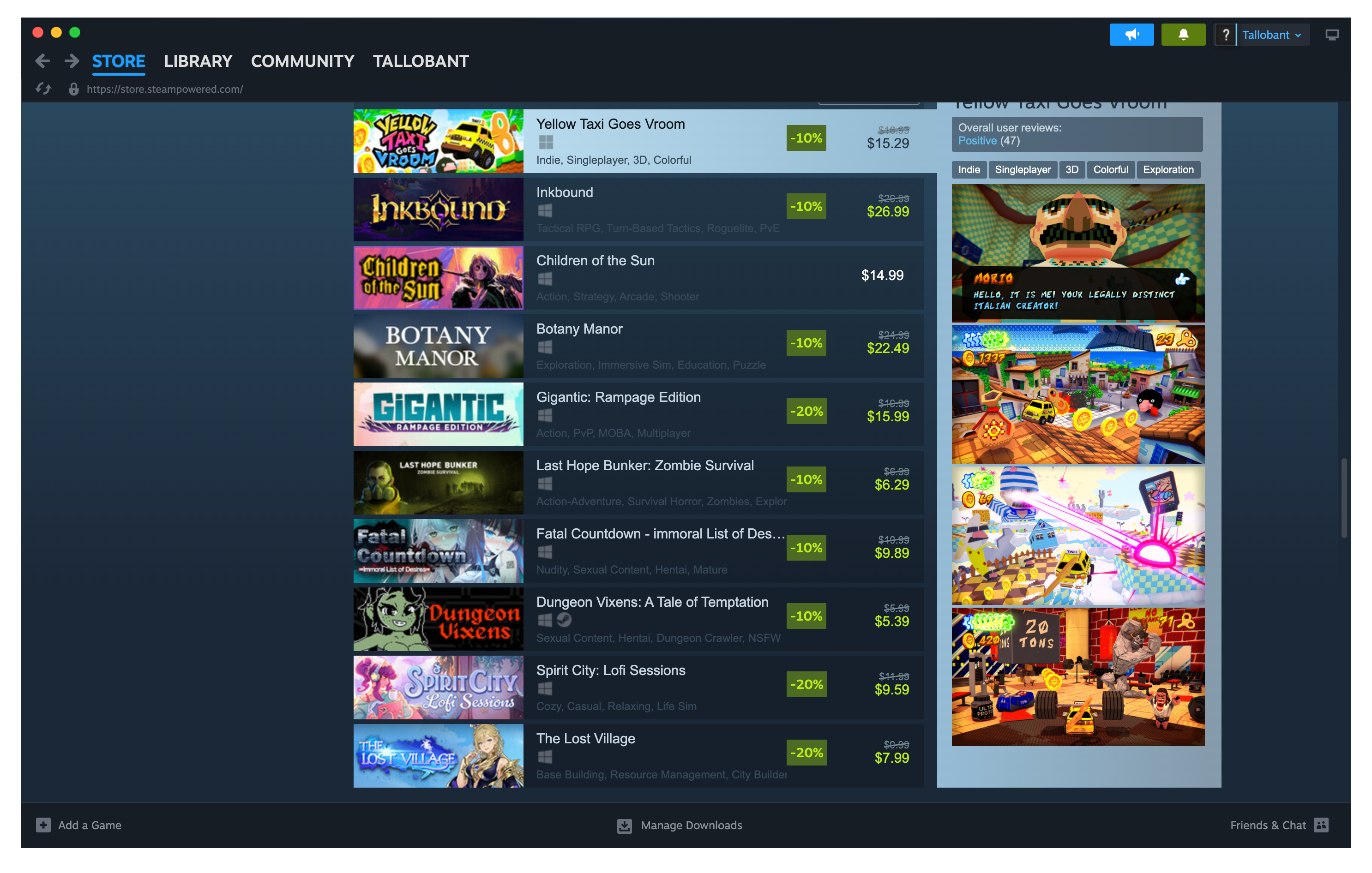
Due to Steam’s popularity, it features a larger library than GOG. Statista reports that Steam has about 70,000 games available in the store, while GOG has only about 9,000.
But when you examine the quality of titles, you’ll see that GOG comes ahead with better value and more comprehensive indexing. But you’re more likely to get newer releases on Steam before they get to GOG.
When it comes to exclusives, the parameters for judging are a little unfair—especially if we’re comparing exclusives the same way you’d compare them in console versus PC gaming. Since Steam has a much larger library and is the default platform of release for so many PC-serving publishers and indie developers, it’s chock-full of thousands of games that no other platform has.
Remember, though, that there are also many low-quality titles. However, Steam still has some major titles that GOG doesn’t, like GTA V (for AAA games) and Dave the Diver (for indie games).
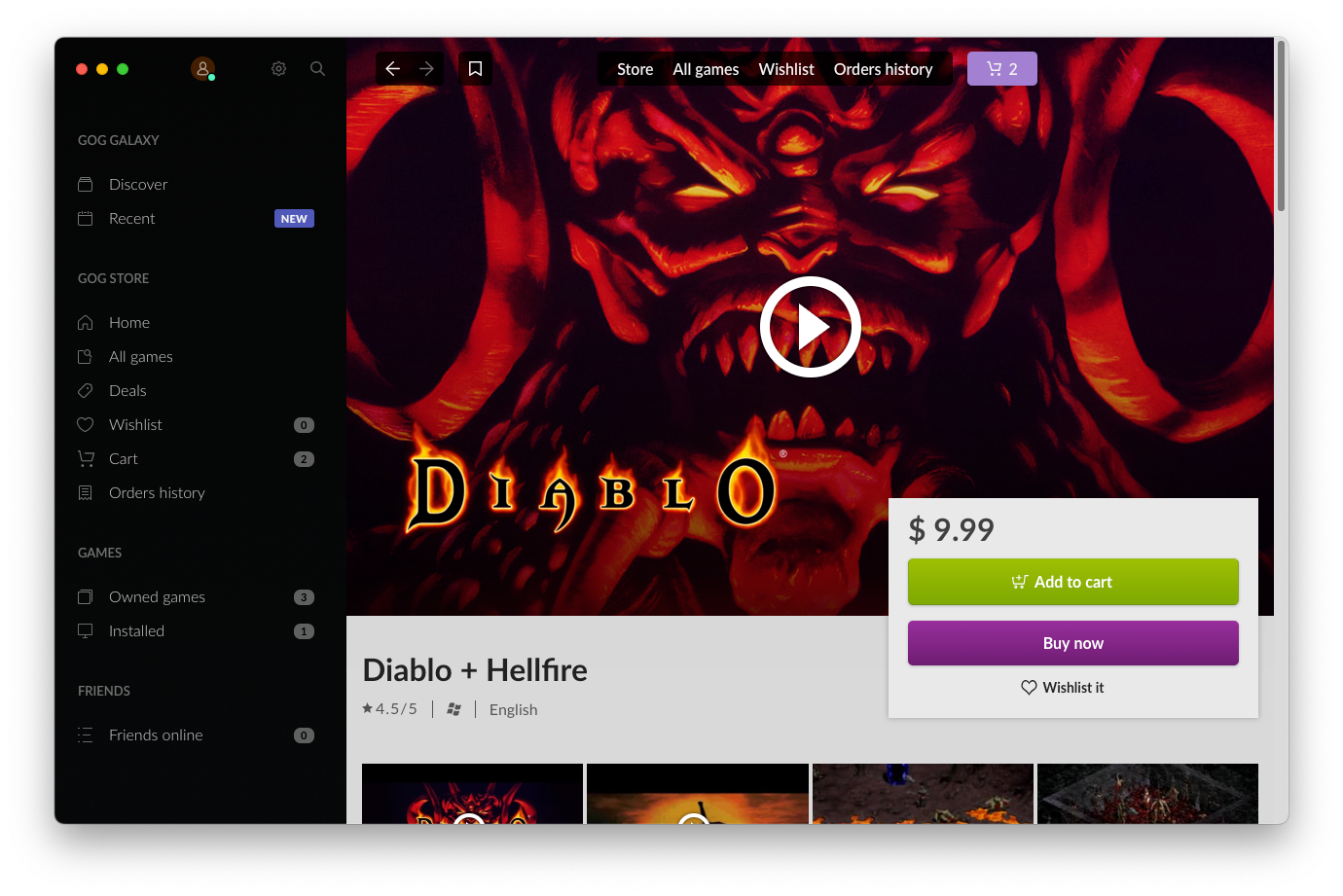
 Software Update Pro - Check and update software installed on your computer.
Software Update Pro - Check and update software installed on your computer.
In turn, GOG specializes in bringing back old games for modern machines. For instance, GOG is the only platform (apart from Blizzard’s very own launcher, Battle.net) that sells digital copies of Diablo: Hellfire, the 1997 Diablo expansion pack. Also, it’s the easiest place to get the digital version of the iconic Mortal Kombat 4, first released in 1998.
If you want an old game, you should check GOG first; GOG is an abbreviation for “good old games”, after all.
If you need to carry along save progress through cloud saves, both platforms offer them in games that support them.
There is one aspect of Steam’s game library that GOG can’t compete against: virtual reality. Steam has a dedicated VR section where you can get all the most popular VR games. It even has a special Steam app called SteamVR that allows you to access VR titles on supported headsets.
 Glary Utilities PRO - Premium all-in-one utility to clean, speed up, maintain and protect your PC
Glary Utilities PRO - Premium all-in-one utility to clean, speed up, maintain and protect your PC
3. UI and Ease of Use
Now that you know what games you can get from Steam and GOG and how you can use them, the next differentiator is how the launchers and storefronts look.
The Steam desktop client was released in 2003 and slowly evolved its iconic banner, website-like style, and top-menu layout to the app we see today. It still pays strong homage to its original look, which can sometimes make it unintuitive to use.
However, it’s a powerful and robust app and it has been frequently updated over the past two decades to get to where it is.
GOG Galaxy is newer, debuting as a desktop client in 2014. It’s more lightweight than Steam and, therefore, easier to navigate. The downside is that it’s not as robust, and it lacks many social and customer experience features that Steam has.
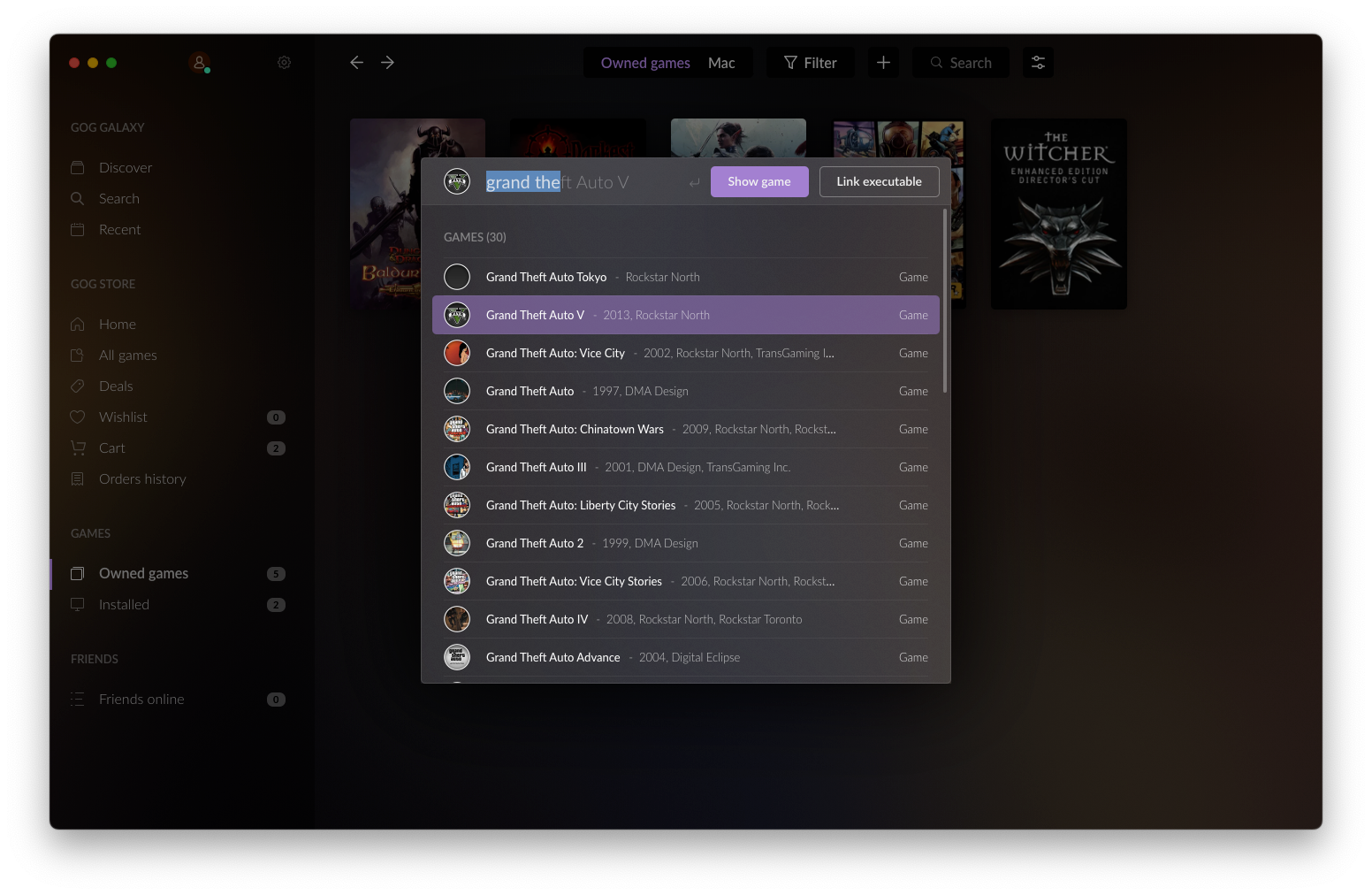
When it comes to important things, such as buying a game or adding a pre-existing game to your library, the user experience varies. While it requires fewer clicks and less searching to buy a game on GOG, it also doesn’t have any options to send a game to a friend.
On the flip side, adding a game you didn’t buy on Steam is easier. All you have to do is clickAdd a Game in the bottom-right corner of the client and choose an executable file in your PC’s file browser. GOG Galaxy forces you to search for the game on its platform, mark it as owned, and then link an executable.
 ZoneAlarm Pro Antivirus + Firewall NextGen
ZoneAlarm Pro Antivirus + Firewall NextGen
4. Community Features and Social Integration
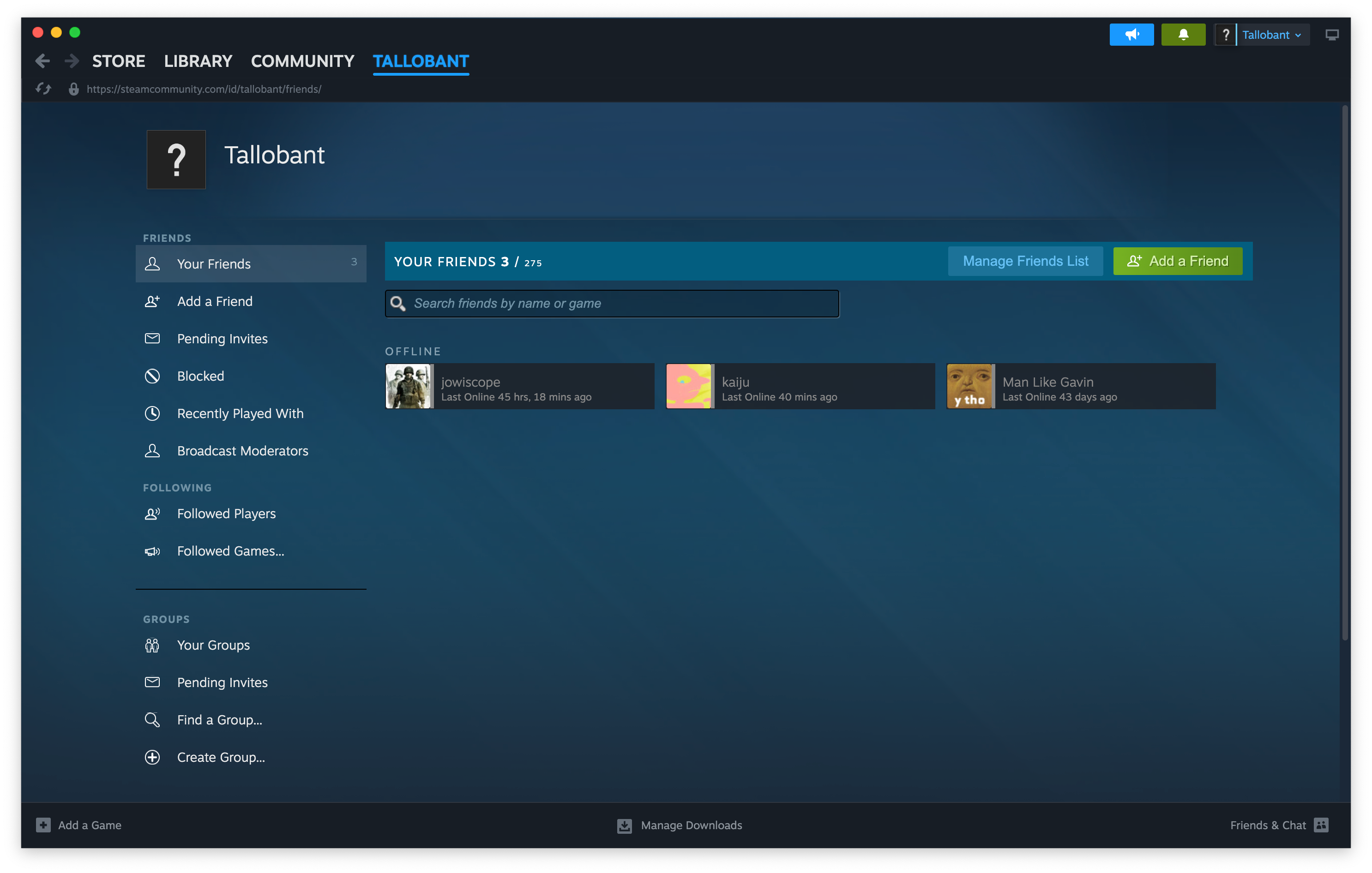
Another important angle to consider when analyzing these two platforms’ differences is their community features. Many people agree that playing games is much more interesting with other people. That’s why both GOG and Steam allow you to add friends.
You can earn and show off achievements on both platforms. They also support crossplay, and you can get GOG Galaxy and Steam on Linux, macOS, and Windows. Each game launcher also has provisions for user-awarded ratings and reviews.
However, Steam has a larger user base and all the benefits that come with it. Steam offers online communities for your favorite games, community-made mods to download, and trading cards you can sell to add to your Steam wallet.
In short, it has the most robust game forum on the internet. You can also easily buy games as gifts and send the key or the game itself to a friend. These are some of the reasons why some argue that all gamers should use Steam .
5. Customer Support Effectiveness and Refund Policies
The final facet separating these two platforms is how they treat distressed customers. We’re not saying any of these are better than the other, but they have different approaches—especially refund policies.
According to MUO’s tests, both GOG and Steam have similar ticket response times. Many other users also have mostly positive remarks about how the customer support team deals with their issues.
Regarding refunds, Steam has a famous two-hour/14-day approach. This means that you must have played the game for less than two hours and owned it for less than 14 days (counting starts on the release date for preorders).
It’s also an easy process and you can see the steps in our guide on how to refund a game on Steam . Steam has a fast refund process, which seems automated if you meet the requirements.
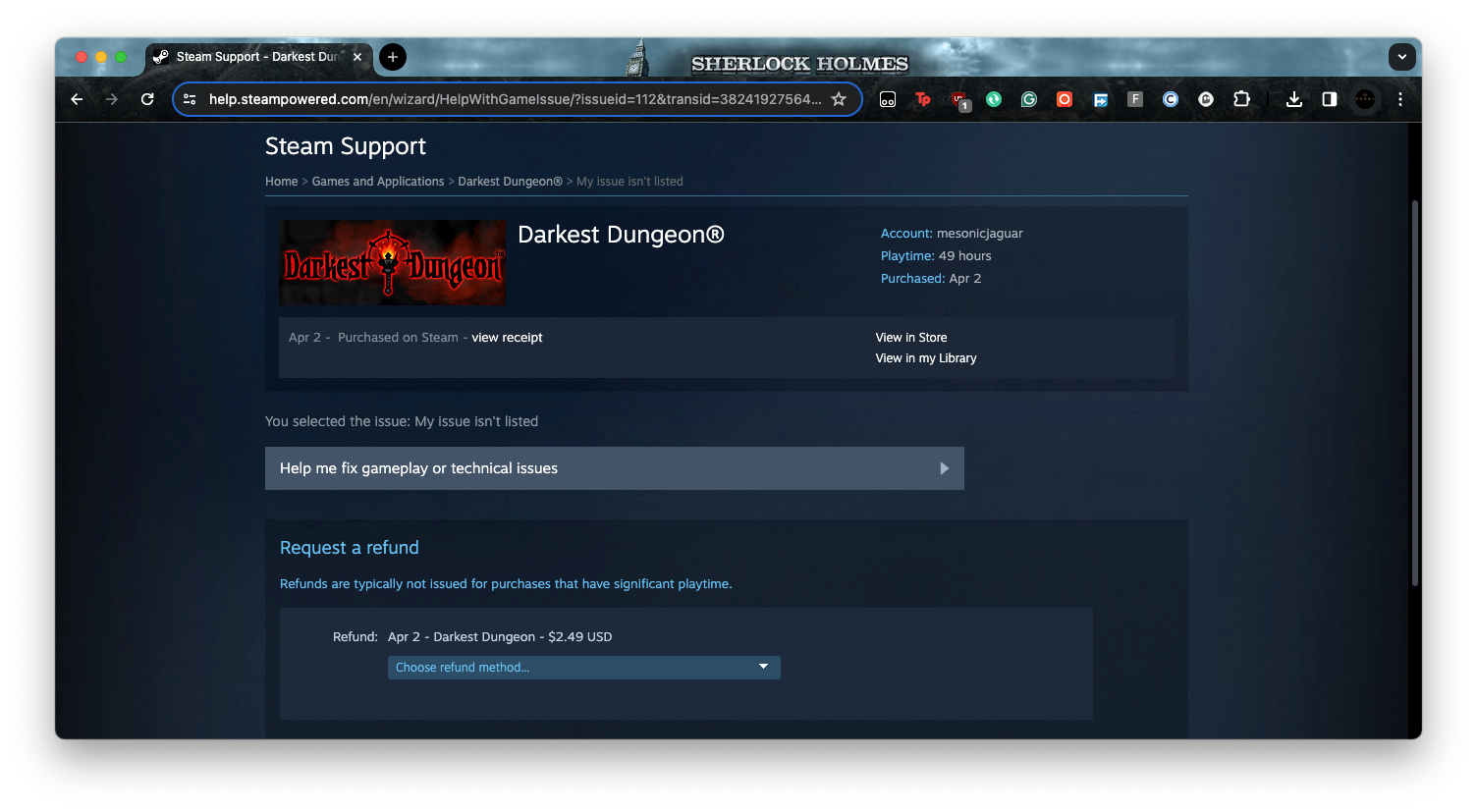
GOG’s refund process is similar. However, it takes a longer time for your money to return. This is especially true if you choose to get the money back through your payment source instead of the wallet. In that case, you should allow up to 30 days. GOG’s slower refund process might be due to manual approvals.
All in all, there’s no reason to stick to only one of these. They seem to be designed to work interchangeably, and many gamers, including me, use both. You can integrate your Steam account into GOG Galaxy and launch all your Steam games there. You can also take advantage of sales on both platforms and enjoy Steam’s packages and GOG’s DRM-free policies at the same time.
- Title: A Look at Steam vs GOG: Digital Storefront Divergences
- Author: William
- Created at : 2024-08-22 22:13:39
- Updated at : 2024-08-23 22:13:39
- Link: https://games-able.techidaily.com/a-look-at-steam-vs-gog-digital-storefront-divergences/
- License: This work is licensed under CC BY-NC-SA 4.0.


